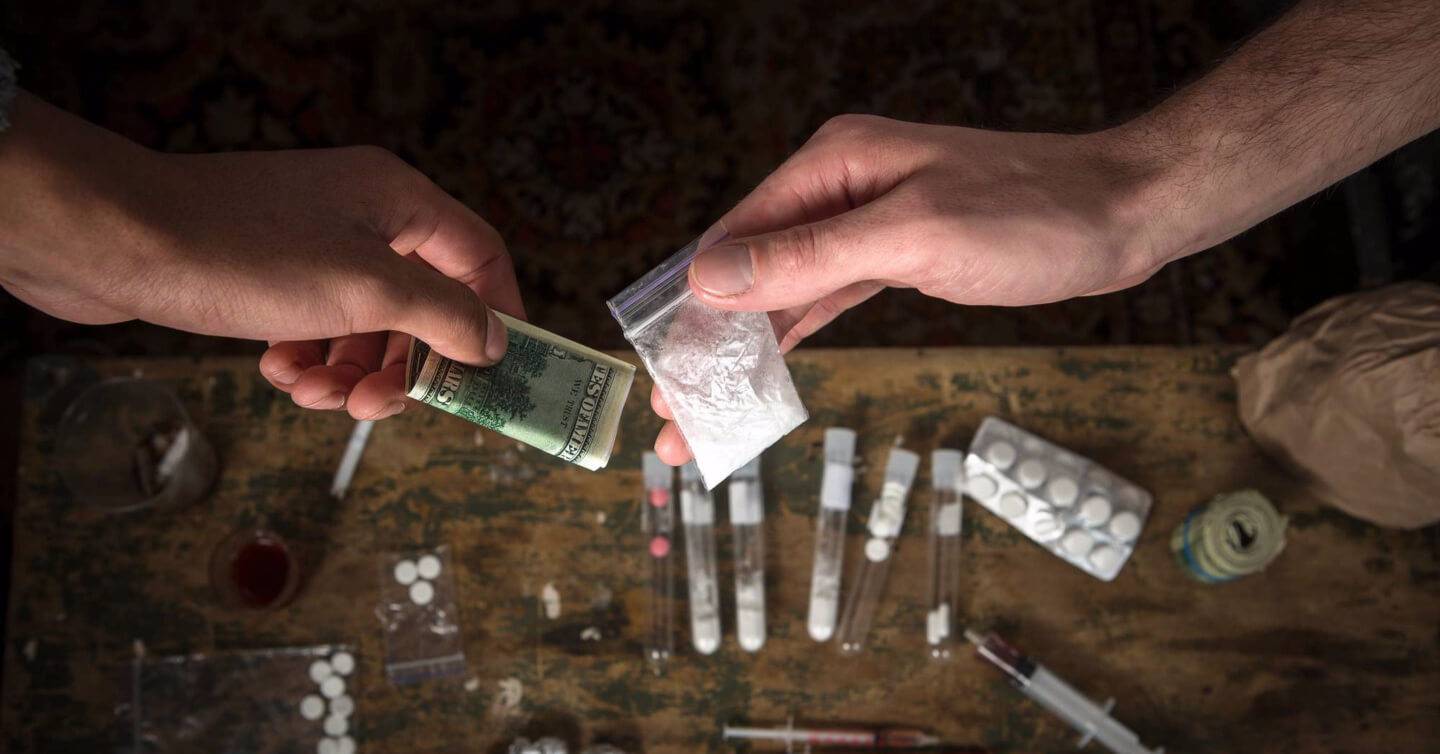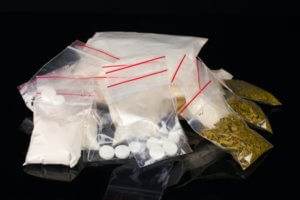
Possession of controlled substance is a serious charge. Drug offenses like possession of a controlled substance are not uncommon, but that doesn’t mean you shouldn’t act quickly to protect yourself if you’ve been charged with a crime involving drugs. You’ll need a criminal defense attorney who’s very familiar with these types of charges, and the sooner you get one, the more options you’ll have.
What does “reasonable suspicion” have to do with drug possession charges?
 Reasonable suspicion is required for a law enforcement officer to pull over a vehicle.The term describes a law enforcement officer’s reasonable belief that the driver of the vehicle has committed a crime or is involved in criminal activity. Unless the person driving is in violation of a traffic law or exhibiting suspicious behavior, an officer can’t cite reasonable suspicion as a basis for pulling the vehicle over. Were the officer to see a car driving erratically, then the officer may reasonably suspect criminal activity is involved, and would be acting within the scope of their authority in pulling the car over. It’s not uncommon for law enforcement officers to cite reasonable suspicion as justification for pulling a car over to check for drug possession.
Reasonable suspicion is required for a law enforcement officer to pull over a vehicle.The term describes a law enforcement officer’s reasonable belief that the driver of the vehicle has committed a crime or is involved in criminal activity. Unless the person driving is in violation of a traffic law or exhibiting suspicious behavior, an officer can’t cite reasonable suspicion as a basis for pulling the vehicle over. Were the officer to see a car driving erratically, then the officer may reasonably suspect criminal activity is involved, and would be acting within the scope of their authority in pulling the car over. It’s not uncommon for law enforcement officers to cite reasonable suspicion as justification for pulling a car over to check for drug possession.
What should I know about car stops?
In instances of interstate car stops and drug arrests, officers may use profiling to identify a vehicle as suspicious as a reason for pulling someone over and requesting to search the vehicle. The “suspicious” nature of the vehicle may be the driver’s ethnicity or an out of state license plate, for example, but an officer can’t rely solely on the driver’s ethnicity to justify identifying the car as suspicious. These scenarios are fertile ground for constitutional injustices to arise, and they result in a large volume of cases of varying degrees of constitutional complexity. The outcome of these cases usually depends on a determination of the scope an individual’s rights and the officer’s duties under the constitution. If drugs or evidence of possession of drugs is seized in the course of one of these stops, there will be a constitutional issue of its admissibility at trial.
Law enforcement vehicles are outfitted with dashboard cameras that record the interaction between an officer and the driver of the stopped car. While not every car stop gets recorded, most do–especially in instances of DUI arrests. If you’ve been pulled over and charged with a crime it’s important to make sure the car stop wasn’t in violation of your constitutional rights. When defending clients, we request law enforcement turn over a copy of any recorded or dashboard camera footage, and we carefully review all of it to determine whether your car was illegally stopped. Where allegations of drug distribution or intent to sell are involved, a positive outcome in the case could hang on the constitutionality of the car stop.
What if the officer asks to search my car?
Let’s say an officer, with reasonable suspicion, pulls you over (maybe you ignored the “no turn on red sign”) and then asks permission to search your vehicle. How do you respond? Politely. Beyond that, you’re within your 4th Amendment rights to either grant or refuse the officer’s request. Just as law enforcement officers generally can’t enter your home without permission unless they hold a search warrant in their hands, neither can they search your car without either your permission or a search warrant.
Without a search warrant, the officer must have probable cause to search your vehicle. If you’ve politely denied the officer’s request, absent probable cause, he can impound your car long enough to obtain a search warrant for your car, but he can’t search the car until he gets a judge to sign the warrant.
Probable cause exists if the officer can see something in plain sight or observes anything that indicates the driver broke the law. Seeing a bong, a crack pipe, or just smelling marijuana would each give an officer probable cause to search the vehicle. Even if you turned down the opportunity to have a stranger rifle through your car and even if there’s nothing in plain sight to constitute probable cause, it’s not outside of the realm of possibility that your car may be searched. If, during the illegal search, any drugs are found, it would most likely be inadmissible at trial since the evidence was obtained through an unconstitutional search.
How DUIs, drug possession charges, and car stops are related
Drug possession charges commonly arise in conjunction with DUI car stops. The Breathalyzer test is normally administered if you’re pulled for driving under the influence, but you could also receive a blood or urine test for drug use. Even if it’s been weeks since you engaged in drug use, you can still test positive for drug use. Under South Carolina law, testing positive for drug use can result in drug crime charges and you could face penalties for driving under the influence of drugs (DUID).
Legal Consequences for Possession of Controlled Substance
Drug charges can leave a devastating impact on your life. For example, if you’re charged with possession of marijuana, also referred to as “simple possession,” South Carolina law dictates fines and potential jail time as a misdemeanor. Depending on the offense, the following can occur:
- First offense — If it’s your first offense, you can be charged $620 and/or face 30 days in jail.
- Second offense — The second charge of marijuana possession can result in a fine of up to $1,000 and a possible year-long jail sentence.
If you’re charged with the much more serious possession with intent to distribute (PWID), the penalties are even more serious. For example:
- First offense PWID — Your first offense will result in a fine of up to $5,000 and/or a potential five-year sentence in prison.
- Second offense PWID — You can suffer a fine up to $10,000 and ten years in prison. You’re also ineligible for federal benefits for up to five years.
Of course, marijuana isn’t the only drug you can be arrested for. Federal law classifies drug possession into five categories depending on the drug’s medical use and how addicting it is. Schedule II drugs have a high chance of abuse, like OxyContin, methamphetamine, or Adderall (an ADHD medication). Schedule III drugs are considered less addictive, and include things like codeine, ketamine, or anabolic steroids. Schedule IV drugs have the lowest risk of dependence and include things like Xanax or Valium. If you are in possession of any of these drugs without a prescription it is a violation of federal law and you will face serious charges. Not to mention, possession of Schedule I drugs like heroin, LSD and ecstasy, are also federal charges that carry strong penalties, including jail time.
While the legal consequences of drug possession charges are serious, if you’re a college student there are other repercussions if you’re charged with possession of a controlled substance or possession with intent to distribute (PWID) drugs.
Academic and Employment Consequences
If you’re facing drug possession charges as a college student, you can also be punished by your university or college resulting in suspension or expulsion. You may even lose your scholarship or FAFSA eligibility.
Even more devastating is the impact a conviction can have on your future. You could encounter problems getting a job since many employers will do a background check prior to hiring.
Find out what your options are
A drug conviction can change the rest of your life. However, if you’ve just been arrested for simple possession, possession of controlled substance, or possession with intent to distribute (PWID), there are options for you.
Hiring an experienced attorney can help you navigate the complex legal system if you’ve been charged. A good local defense lawyer is familiar with diversion programs, treatment options, and other creative measures that could help you to avoid criminal conviction or at least minimize any penalties you face in South Carolina. The sooner you have an attorney, the better. Mr. Tarr is available to help, 24/7.